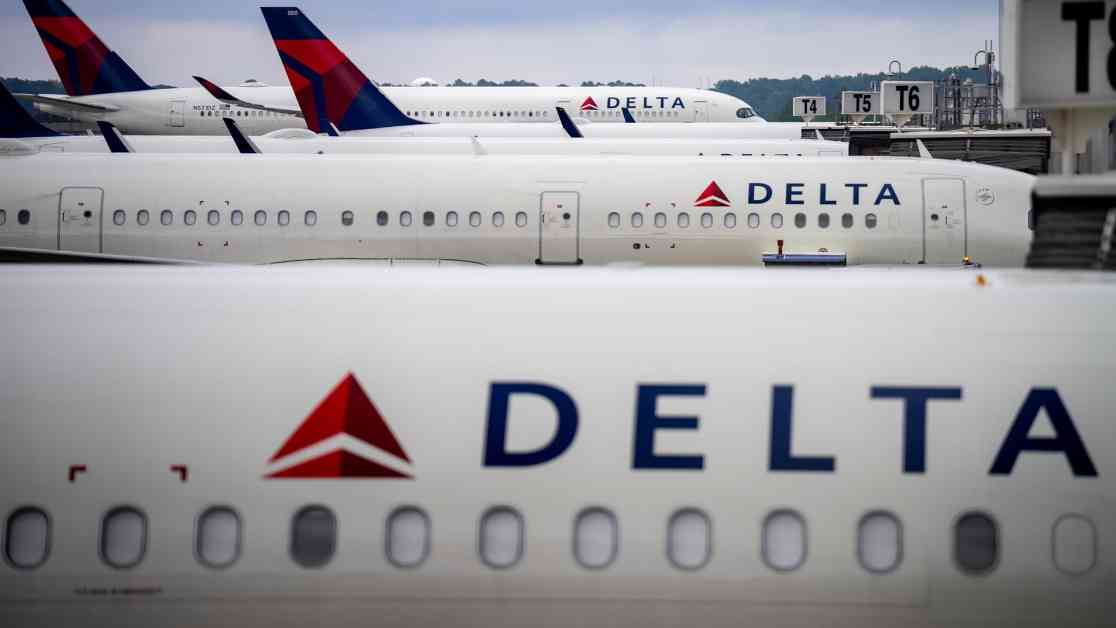Delta Air Lines, one of the leading airlines in the United States, has announced the departure of its Chief Operating Officer, Mike Spanos, after just over a year in the position. The news was disclosed in a securities filing on Friday, with CEO Ed Bastian sharing the information in an employee memo. Spanos is set to leave the company at the end of the month to pursue a new opportunity at another firm.
Spanos’ decision to leave Delta comes in the aftermath of a challenging period for the airline, marked by a significant disruption caused by the CrowdStrike outage in July. The outage led to widespread delays and cancellations, resulting in estimated losses of around $500 million for Delta. The airline has indicated that it intends to seek compensation from CrowdStrike and Microsoft for the financial impact of the incident.
Despite the recent challenges faced by Delta, Bastian revealed in the memo that Spanos had expressed his interest in exploring opportunities outside of the company earlier in the summer. This decision was ultimately solidified in Spanos’ choice to pursue a new role elsewhere. Spanos, who joined Delta in May 2023, brought a wealth of experience to the role, having previously served as CEO of Six Flags Entertainment and held executive positions at PepsiCo.
In light of Spanos’ departure, Delta has announced that it will not be seeking a direct replacement for the Chief Operating Officer position. Instead, John Laughter, who currently serves as the chief of operations and president of Delta’s TechOps maintenance and overhaul unit, along with Allison Ausband, the chief customer experience officer, will report directly to Bastian. This organizational shift reflects Delta’s commitment to maintaining operational efficiency and ensuring a seamless transition following Spanos’ exit.
Impact of Spanos’ Departure
Spanos’ departure from Delta raises questions about the implications for the airline’s operations and strategic direction. As the Chief Operating Officer, Spanos played a key role in overseeing the day-to-day management of Delta’s flight operations, maintenance, and customer service initiatives. His departure comes at a critical juncture for the airline, as it navigates the aftermath of the CrowdStrike outage and seeks to recover from the financial losses incurred.
The announcement of Spanos’ departure may also have broader implications for Delta’s leadership team and organizational structure. With the decision not to fill the Chief Operating Officer role directly, Delta will be relying on existing executives like Laughter and Ausband to assume additional responsibilities and maintain continuity in key areas of the business. This shift in leadership dynamics could impact decision-making processes and the overall strategic direction of the airline in the coming months.
Delta’s Response to Recent Challenges
In the wake of the CrowdStrike outage and the subsequent disruptions to its operations, Delta has been proactive in addressing the financial impact of the incident. The airline’s decision to seek compensation from CrowdStrike and Microsoft underscores its commitment to holding responsible parties accountable for the losses incurred. By pursuing restitution for the damages suffered, Delta is sending a clear message that it will not tolerate disruptions that negatively impact its business and customers.
Additionally, Delta’s decision not to replace Spanos with a new Chief Operating Officer signals a strategic shift in its leadership approach. By redistributing responsibilities among existing executives, the airline is streamlining its organizational structure and promoting greater collaboration across key functional areas. This move may enable Delta to adapt more quickly to changing market dynamics and enhance its agility in responding to future challenges.
Leadership Transition and Future Outlook
As Delta prepares for the transition following Spanos’ departure, CEO Ed Bastian will play a pivotal role in guiding the airline through the leadership change. With Laughter and Ausband assuming expanded responsibilities, Bastian will be tasked with overseeing the operational and customer experience functions to ensure a smooth transition and continuity of service for Delta’s passengers.
Looking ahead, Delta faces both opportunities and challenges as it navigates the evolving landscape of the airline industry. The airline’s ability to adapt to changing market conditions, leverage its operational strengths, and deliver exceptional customer experiences will be critical in maintaining its competitive edge and driving sustainable growth. By leveraging the leadership capabilities of its executive team and fostering a culture of innovation and resilience, Delta is well-positioned to overcome current challenges and capitalize on future opportunities in the aviation sector.
In conclusion, the departure of Chief Operating Officer Mike Spanos from Delta Air Lines marks a significant leadership transition for the airline. While his exit presents challenges in the short term, Delta’s proactive response to recent disruptions and strategic realignment of its leadership structure demonstrate the company’s resilience and commitment to operational excellence. As Delta navigates the complexities of the airline industry and charts a course for future growth, its focus on innovation, customer service, and organizational effectiveness will be key drivers of success in the months and years to come.






















